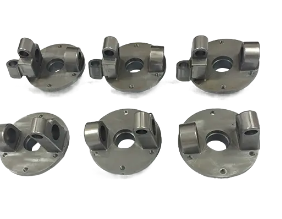Precision CNC (Computer Numerical Control) machining has revolutionized manufacturing industries, offering numerous benefits that traditional machining techniques cannot provide. Here are some of the key benefits of precision CNC machining for manufacturing industries:
Accurate and Consistent Parts: CNC machines are capable of producing highly accurate and consistent parts, with tolerances that traditional machining techniques cannot match. This ensures that every part is exactly the same, which is essential for mass production.
Increased Efficiency: CNC machines are computer-controlled, which means that they can run continuously without requiring manual intervention. This reduces production time and increases efficiency.
Greater Flexibility: CNC machines can be programmed to produce a wide range of parts, from simple to complex shapes. This means that manufacturers can respond quickly to changing customer demands and market trends.
Improved Safety: CNC machines are designed with safety features that reduce the risk of accidents and injuries. These features include automatic shut-off switches, emergency stop buttons, and safety interlocks.
Cost-effective: CNC machines can produce parts at a lower cost than traditional machining techniques, as they require less manual labor and reduce the risk of errors.
Faster Prototyping: CNC machines can produce prototypes quickly and accurately, which reduces the time and cost required for testing and development.
Scalability: CNC machines can produce large volumes of parts quickly and consistently, making them ideal for scaling up production to meet increasing demand.
In summary, precision CNC machining offers numerous benefits for manufacturing industries, including increased efficiency, greater flexibility, improved safety, and cost-effectiveness. With its ability to produce accurate and consistent parts quickly and reliably, CNC machining has become an essential part of modern manufacturing.
